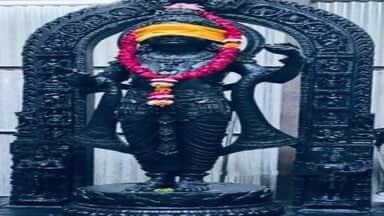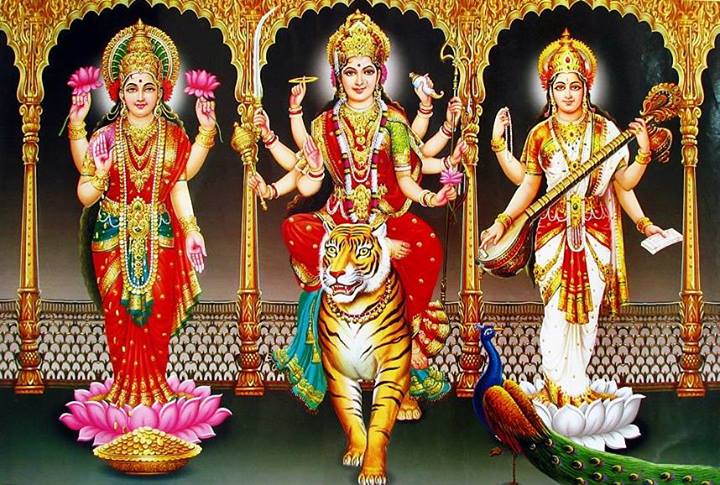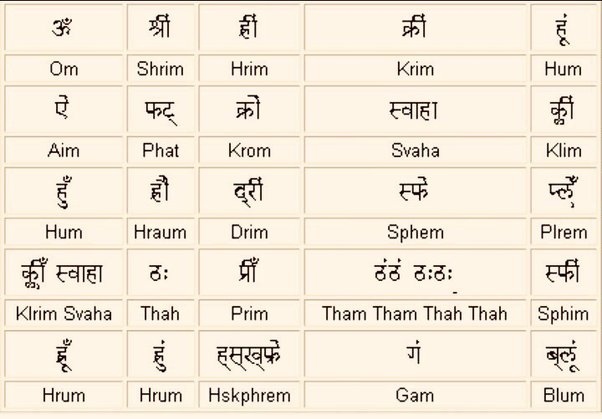I have been under the illusion that I have been researching the Ancient History of India and deluded my self that I have been pointing out that there were distortions in Indian History and providing information about real history of India. I was under the impression that misinformation was started by the Invaders ,mostly by the British,to a lesser extent by Islam historians,though I was aware the Congress Party of India was also responsible for some misinformation and they are culpable of not correcting the earlier misinformation.
How foolish one can one be,like me? I had never imagined that I was such an idiot that I was checking ancient history in detail but not recent history ,not lies propogated to such an extent, that one does not doubt certain things which were as good as Axioms!
Yes, I am talking about The term ‘Secular’ used in conjunction with India while defining India as a State.All along I was under the impression that the term Secular was a part of the Original Constitution of India,enacted just after India’s independence.

Preamble to the Constitution of India,Before 42 Amendment.
To my shock, it is not the case.
The term Secular was introduced in the Constitution of India as an amendment, the 42 Amendment, in 1976, by the then Prime minister Ms.Indira Gandhi, to gain votes ,when India went to polls.This amendment was made,among others, when she declared Emergency in India, suspending fundamental Rights.Entire opposition was put behind bars. Emergency was declared by Indira Gandhi because she was disqualified by the Court .Her election was set aside.Her way of handling the issue was to suspend the Constitution and declaring Emergency in India.The Emergency declared by her was found illegal on two issues. Though the aspect of Changing the preamble was not struck down, the issue is very much alive. I have provided information in the article.It can not be denied that the changing the preamble to the Constitution is morally wrong and legally untenable.
As a corollary, laws enacted during the period of Emergency, is illegal.To top it,many states did not ratify it. However it was classes as it met the basic requirements for amending the Constitution.However, as Emergency was illegal,acts passed during the period, including the Forty second Amendment is illegal.As the term ‘Secular,’ was included under 42 Amendment , it is blatantly brazenly Illegal.
https://ramanisblog.in/2021/05/09/nothing-remains-but-universal-cognition/The 42nd amendment, officially known as The Constitution (Forty-second amendment) Act, 1976, was enacted during the Emergency (25 June 1975 – 21 March 1977) by the Indian National Congress government headed by Indira Gandhi.Many parts of the Constitution, including the Preamble and amending clause, were changed by the 42nd Amendment, and some new articles and sections were inserted. The amendment’s fifty-nine clauses stripped the Supreme Court of many of its powers and moved the political system toward parliamentary sovereignty. It curtailed democratic rights in the country, and gave sweeping powers to the Prime Minister’s Office.[3] The amendment gave Parliament unrestrained power to amend any parts of the Constitution, without judicial review. It transferred more power from the state governments to the central government, eroding India’s federal structure. The 42nd Amendment also amended Preamble and changed the description of India from “sovereign democratic republic” to a “sovereign, socialist secular democratic republic”, and also changed the words “unity of the nation” to “unity and integrity of the nation”.On 31 July 1980, in its judgement on Minerva Mills v. Union of India, the Supreme Court declared unconstitutional two provisions of the 42nd Amendment which prevent any constitutional amendment from being “called in question in any Court on any ground” and accord precedence to the Directive Principles of State Policy over the Fundamental Rights of individuals respectively.
ContentsThe Act was passed in accordance with the provisions of Article 368 of the Constitution, and was ratified by more than half of the State Legislatures, as required under Clause (2) of the said arti..Did not ratify:
Gujarat
Jammu and Kashmir
Kerala
Meghalaya
Nagaland
Tamil NadAmbedkar stated, “My objections, stated briefly are two. In the first place the Constitution… is merely a mechanism for the purpose of regulating the work of the various organs of the State. It is not a mechanism where by particular members or particular parties are installed in office. What should be the policy of the State, how the Society should be organised in its social and economic side are matters which must be decided by the people themselves according to time and circumstances. It cannot be laid down in the Constitution itself, because that is destroying democracy altogether. If you state in the Constitution that the social organisation of the State shall take a particular form, you are, in my judgment, taking away the liberty of the people to decide what should be the social organisation in which they wish to live. It is perfectly possible today, for the majority people to hold that the socialist organisation of society is better than the capitalist organisation of society. But it would be perfectly possible for thinking people to devise some other form of social organisation which might be better than the socialist organisation of today or of tomorrow. I do not see therefore why the Constitution should tie down the people to live in a particular form and not leave it to the people themselves to decide it for themselves. This is one reason why the amendment should be opposed…In its election manifesto for the 1977 elections, the Janata Party promised to “restore the Constitution to the condition it was in before the Emergency and to put rigorous restrictions on the executive’s emergency and analogous powers”. The election ended the control of the Congress (Congress (R) from 1969) over the executive and legislature for the first time since independence. After winning the elections, the Moraji Desai government attempted to repeal the 42nd Amendment. However, Gandhi’s Congress party held 163 seats in the 250 seat Rajya Sabha, and vetoed the government’s repeal bill.
The Janata government then brought about the 43rd and 44th Amendments in 1977 and 1978 respectively, to restore the pre-1976 position to some extent.Among other changes, the amendments revoked the 42nd Amendment’s provision that Directive Principles take precedence over Fundamental Rights, and also curbed Parliament’s power to legislate against “antinational activities”.However, the Janata Party was not able to fully achieve its objective of restoring the Constitution to the condition it was in before the Emergency.
https://en.m.wikipedia.org/wiki/Forty-second_Amendment_of_the_Constitution_of_India#:~:text=The%2042nd%20Amendment%20changed%20the,and%20integrity%20of%20the%20nation%22.

Referring to the 2017 verdict, petitioner Vera Sarin said the proclamation of Emergency also needed to be examined to declare the decision as unconstitutional.
“The Presidential order dated June 25, 1975 is void and unconstitutional and the continuation of the same was a fraud on the Constitution. The Emergency declared under Article 352 of the Constitution was due to threat of external aggression and in as much as the Presidential order was not in furtherance of the object for which the Emergency was declared, there was no nexus between the impugned Presidential order and declaration of Emergency,” she said.
“The pain and trauma and untold misery suffered by the petitioner, to this date has remained unacknowledged and unaddressed. The present petition is a plea for justice and restitution of a lifetime spent in utter misery and anguish on account of the atrocities suffered by the petitioner, her deceased husband and her family,” the petition said.
Read more at:
http://timesofindia.indiatimes.com/articleshow/79616079.cms?utm_source=contentofinterest&utm_medium=text&utm_campaign=cppst
On 12 June 1975, Justice Jagmohanlal Sinha of the Allahabad High Court found the prime minister guilty on the charge of misuse of government machinery for her election campaign. The court declared her election null and void and unseated her from her seat in the Lok Sabha. The court also banned her from contesting any election for an additional six years. Serious charges such as bribing voters and election malpractices were dropped and she was held responsible for misusing government machinery and found guilty on charges such as using the state police to build a dais, availing herself of the services of a government officer, Yashpal Kapoor, during the elections before he had resigned from his position, and use of electricity from the state electricity department.
Because the court unseated her on comparatively frivolous charges, while she was acquitted on more serious charges, The Times described it as “firing the Prime Minister for a traffic ticket”. Her supporters organised mass pro-Indira demonstrations in the streets of Delhi close to the Prime Minister’s residence.[12] The persistent efforts of Narain were praised worldwide as it took over four years for Justice Sinha to pass judgement against the prime minister.
Indira Gandhi challenged the High Court’s decision in the Supreme Court. Justice V. R. Krishna Iyer, on 24 June 1975, upheld the High Court judgement and ordered all privileges Gandhi received as an MP be stopped, and that she be debarred from voting. However, she was allowed to continue as Prime Minister pending the resolution of her appeal. Jayaprakash Narayan and Morarji Desai called for daily anti-government protests. The next day, Jayaprakash Narayan organised a large rally in Delhi, where he said that a police officer must reject the orders of government if the order is immoral and unethical as this was Mahatma Gandhi’s motto during the freedom struggle. Such a statement was taken as a sign of inciting rebellion in the country. Later that day, Indira Gandhi requested a compliant President Fakhruddin Ali Ahmed to proclaim a state of emergency. Within three hours, the electricity to all major newspapers was cut and the political opposition arrested. The proposal was sent without discussion with the Union Cabinet, who only learnt of it and ratified it the next morning…https://en.m.wikipedia.org/wiki/The_Emergency_(India)
Indira Gandhi image from https://ccrd.vidhiaagaz.com/42nd-amendment-of-indian-constitution/
Other images from Wikipedia.





Leave a comment